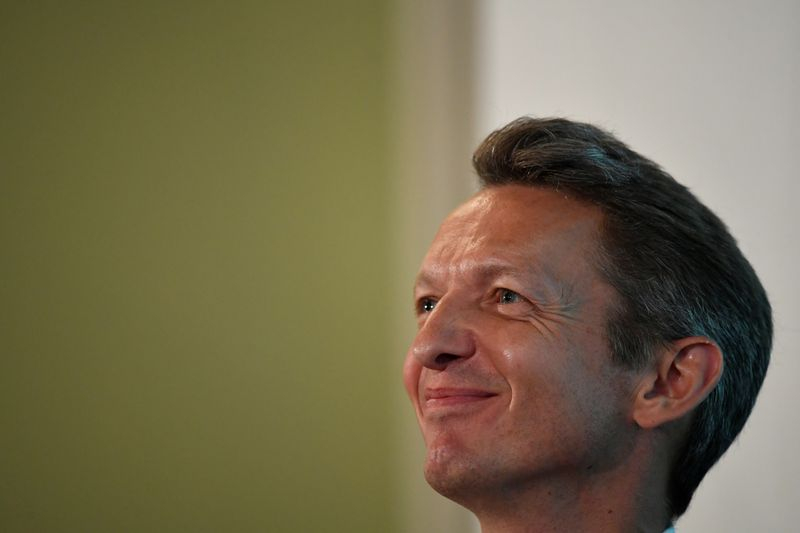Bank of England’s chief economist Haldane to quit By Reuters

By David Milliken and William Schomberg
LONDON (Reuters) – The Bank of England said on Tuesday that its chief economist, Andy Haldane, will leave the central bank after more than 30 years to become chief executive of a London-based charity that focuses on social and economic issues.
Haldane has been the most upbeat member of the BoE’s Monetary Policy Committee about the prospects for a sharp economic recovery from the COVID pandemic, and in February he likened inflation to a “tiger” that could easily be roused.
Sterling fell slightly against the dollar and the euro following the news that he will step down from the Monetary Policy Committee after its June meeting, and start his new role in September.
“Markets have initially viewed it as the only major hawk leaving the committee, perhaps the only hawk at the moment,” James Smith, an economist at ING, said.
“His comments about the recovery being particularly fast were not shared by all his colleagues.”
Haldane will head the Royal Society for Arts, Manufactures and Commerce, which was founded in 1754 and says it “unites people and ideas to develop practical solutions to solve the challenges of our time”.
Haldane joined the BoE in 1989 and became chief economist in 2014. He has taken a keen interest in the charitable sector and headed a recently scrapped government body to promote industrial policy and suggest measures to boost businesses’ productivity.
Haldane said he shared the RSA’s sense of challenges from technology to longevity, from inequality to the environment.
“Meeting these new challenges will require new thinking, new policies and new partnerships between governments, industries and civil society, working in partnership,” he said in a statement issued by the RSA.
BoE Governor Andrew Bailey said Haldane had been “an imaginative and creative thinker on the wide range of issues the UK economy faces, as well as helping create and drive forward new ways for the Bank to engage with the public”.
Haldane has a reputation as the BoE’s most colourful speaker.
In 2012, he addressed a gathering of the anti-capitalist Occupy movement and praised it for suggesting new ways to fix the shortcomings of global finance.
A year later, he said central banks had “blown the biggest government bond bubble in history” as they stepped up their bond-buying programmes.

